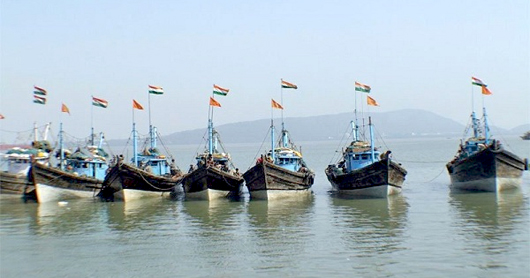Ahmedabad, Jul 5: A woman police sub-inspector (PSI) with Ahmedabad Police was arrested and sent to three-day police remand, on Saturday, for allegedly accepting a bribe of Rs 20 lakh from an Ahmedabad-based businessman — accused in two rape cases — in exchange for not applying a stringent act against him.
According to police officials, Shweta Jadeja, PSI and incharge of Mahila police station (West) in the city, was arrested by a team of Detection of Crime Branch (DCB) officials in Ahmedabad on Friday after the complainant in the case, the rape accused, approached the Crime Branch and stated that Jadeja had allegedly demanded Rs 35 lakh form him, in exchange for not booking him under the Prevention of Anti-Social Activities (PASA) Act.
The PASA Act in Gujarat gives power to the police to detain an accused and send them to a prison away from their native district. The complainant claimed that he already paid Rs 20 lakh of the total amount to Jadeja on February 3.
On Saturday, a sessions court awarded Jadeja a three-day remand with the Crime Branch, which will end at 11:30 am on July 7. Following this, the PSI will undergo a medical check-up and be presented before the magistrate again.
“We had originally demanded a seven-day remand. The accused officer has been sent to three-day remand for further investigation in the case,” said a senior police official in Ahmedabad.
According to police, complainant Kenal Shah — managing director of GSP Crop Science Private Limited, a crop solution-based company in Ahmedabad — is allegedly facing two separate rape cases under IPC section 376.
PSI Jadeja was first entrusted with the investigation of a rape case against Shah in January this year, lodged at Mahila police station (West).
The rape case complaint is of 2019. Another rape case against Shah was being probed by Assistant Commissioner of Police (Crimes Against Women), Mini Josef, wherein the investigation was reportedly completed.
As per the remand application report filed by the police, Jadeja had allegedly threatened Shah through his brother Bhavesh Shah — a joint managing director at GSP Crop Science Private Limited — and initially demanded Rs 25 lakh for not applying the PASA Act against the accused. The bribe amount was then settled at Rs 20 lakh and in February, the accused allegedly paid the amount via an office accountant to one Jayubha, allegedly a representative of Jadeja, from a finance office in Jamjodhpur area of Ahmedabad.
The report further stated that after the initial amount was paid, a third complaint was allegedly made against Kenal by a security officer at his office, Yograjsinh, for criminal intimidation. After the third complaint, PSI Jadeja had contacted Bhavesh again and demanded an additional sum of Rs 15 lakh for not applying the PASA Act against Kenal. The complaint from the security officer was not converted into an FIR and Shah has not been jailed yet.
However, It was after the demand of Rs 15 lakh that complainant Kenal approached the Crime Branch on June 27. An FIR was lodged against Jadeja at Ahmedabad DCB police station under sections seven and twelve of the Prevention of Corruption Act, charging her for “public servant taking gratification other than legal remuneration in respect of an official act”.
“Now that we have received the remand of the accused officer from the court, we will try to trace and recover the alleged Rs 20 lakh amount she received in this case,” said Deepan Bhadran, Deputy Commissioner of Police, Ahmedabad.
Shweta Jadeja is a PSI of the 2016-’17 batch and a resident of Vastrapur in Ahmedabad, while her native place is in Keshod of Junagadh district. The police have not recovered the bribe amount she allegedly accepted as of late Saturday.






Comments
Add new comment